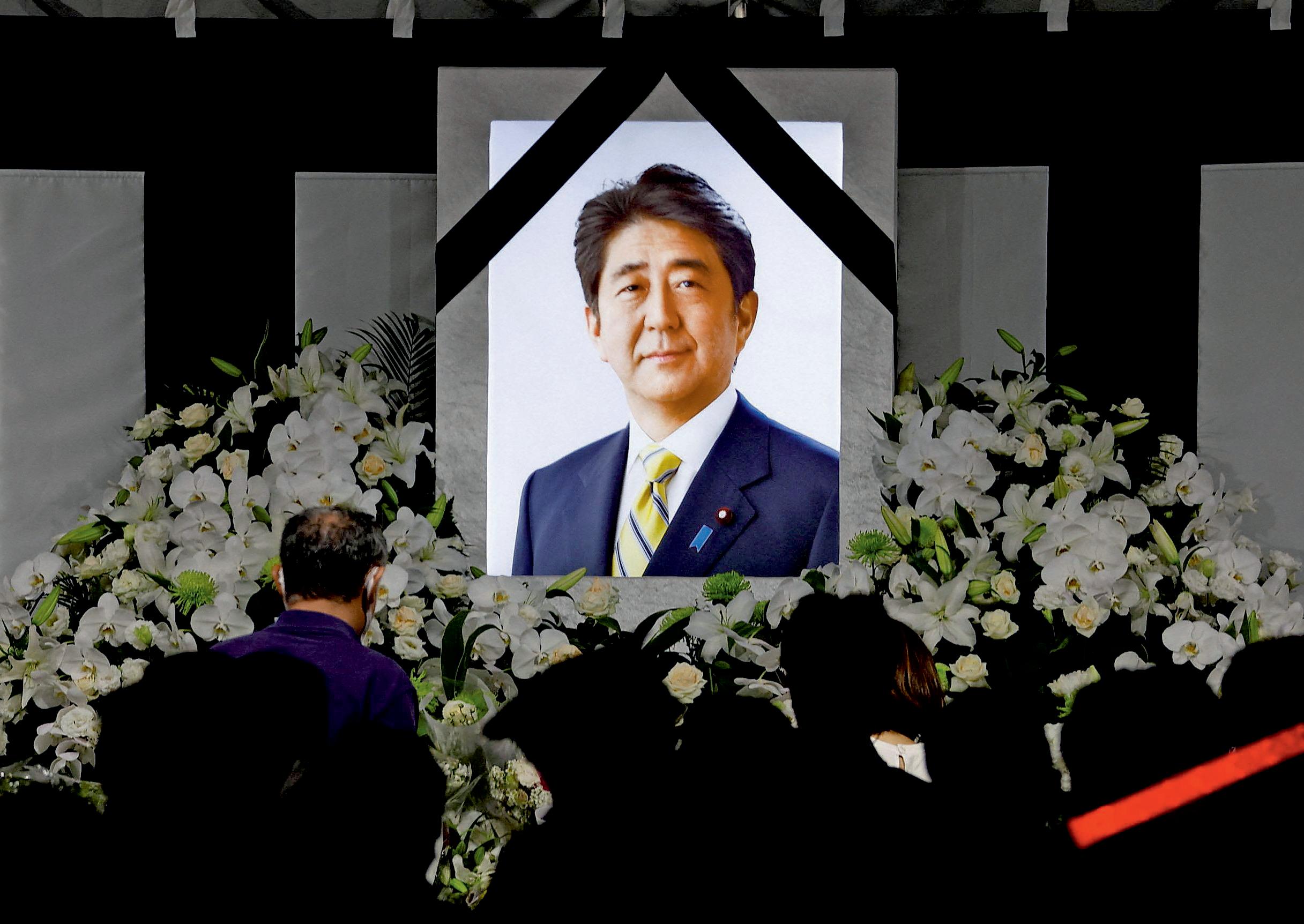
In the days after Shinzo Abe was shot dead last summer while making an election campaign speech, commentators struggled to articulate a motive for a seemingly senseless attack on Japan's former and longest-serving prime minister.
Abe's violent death was an affront to democracy, said the prime minister, Fumio Kishida, adding that his mentor would be given a state funeral.
But Kishida was mistaken if he believed that Abe's controversial, and expensive, official farewell would achieve closure. Eight months on, the fallout from the killing is still being felt throughout Japan's politics and will continue into this year. It has sent Kishida's approval ratings plunging, triggered ministerial resignations, and ensnared hundreds of ruling Liberal Democratic party (LDP) politicians.
At the heart of the scandal lies the Unification church, whose members are known colloquially as Moonies. Founded in South Korea in 1956 by the self-proclaimed messiah Sun Myung Moon, the church has established a global presence with Japan proving fertile ground for converts and their donations.
When Tetsuya Yamagami allegedly fired the second, and decisive, shot from a homemade gun as Abe addressed voters outside a railway station on 8 July, he can have had little inkling of how deeply his alleged crime would reverberate through Nagatacho, Japan's political nerve centre.
Denne historien er fra January 20, 2023-utgaven av The Guardian Weekly.
Start din 7-dagers gratis prøveperiode på Magzter GOLD for å få tilgang til tusenvis av utvalgte premiumhistorier og 9000+ magasiner og aviser.
Allerede abonnent ? Logg på
Denne historien er fra January 20, 2023-utgaven av The Guardian Weekly.
Start din 7-dagers gratis prøveperiode på Magzter GOLD for å få tilgang til tusenvis av utvalgte premiumhistorier og 9000+ magasiner og aviser.
Allerede abonnent? Logg på

The Saudi football World Cup is an act of violence and disdain
Well, that's that then. In the event there were only two notes of jeopardy around Fifa's extraordinary virtual congress last week to announce the winning mono-bids, the vote without a vote, for the right to host the 2030 and 2034 football World Cups.

AI has made the move into video and it's worryingly plausible
I recently had the opportunity to see a demo of Sora, OpenAI's video generation tool, which was released in the US last Monday, and it was so impressive it made me worried for the future.

With tyrant Assad ousted, Syrians deserve support and hope
Last week, time collapsed. Bashar al-Assad's fall recalled scenes across the region from the start of the Arab spring almost 14 years ago. Suddenly history felt vivid, its memories sharpened. In fact it no longer felt like history.

TV
The Guardian Weekly team reveals our small-screen picks of the year, from the underground vaults of post-apocalyptic Fallout to the mile-high escapism of Rivals

Albums
Murky love stories, nostalgic pop and an in-your-face masterpiece captured our critics' ears in 2024

Film
Visual language, sound, light and rhythm are to the fore in the best movies of the year

Hidden delights Our 24 travel finds of 2024
Guardian travel writers share their discoveries of the year, from Læsø to Lazio

'It's really a disaster' The fight to save lives as gang war consumes capital
Dr James Gana stepped out on to the balcony of his hospital overlooking a city under siege. \"There's a sensation of 'What's next?'. Desperation is definitely present,\" the Médecins Sans Frontières (MSF) medic said, as he stared down at one of scores of camps for displaced Haitians in their country's violence-plagued capital.

Trailblazers The inspiring people we met around the world this year
From an exuberant mountaineer to a woman defiantly facing the guns of war, here are some of the brave individuals who gave us hope in a tumultuous 2024

Votes of confidence
From India to Venezuela and Senegal to the US, more people voted this year than ever before, with over 80 elections across the world. With rising authoritarianism and citizen-led resistance revealing its vulnerabilities and resilience in the face of unprecedented challenges, has democracy reached its breaking or turning point?